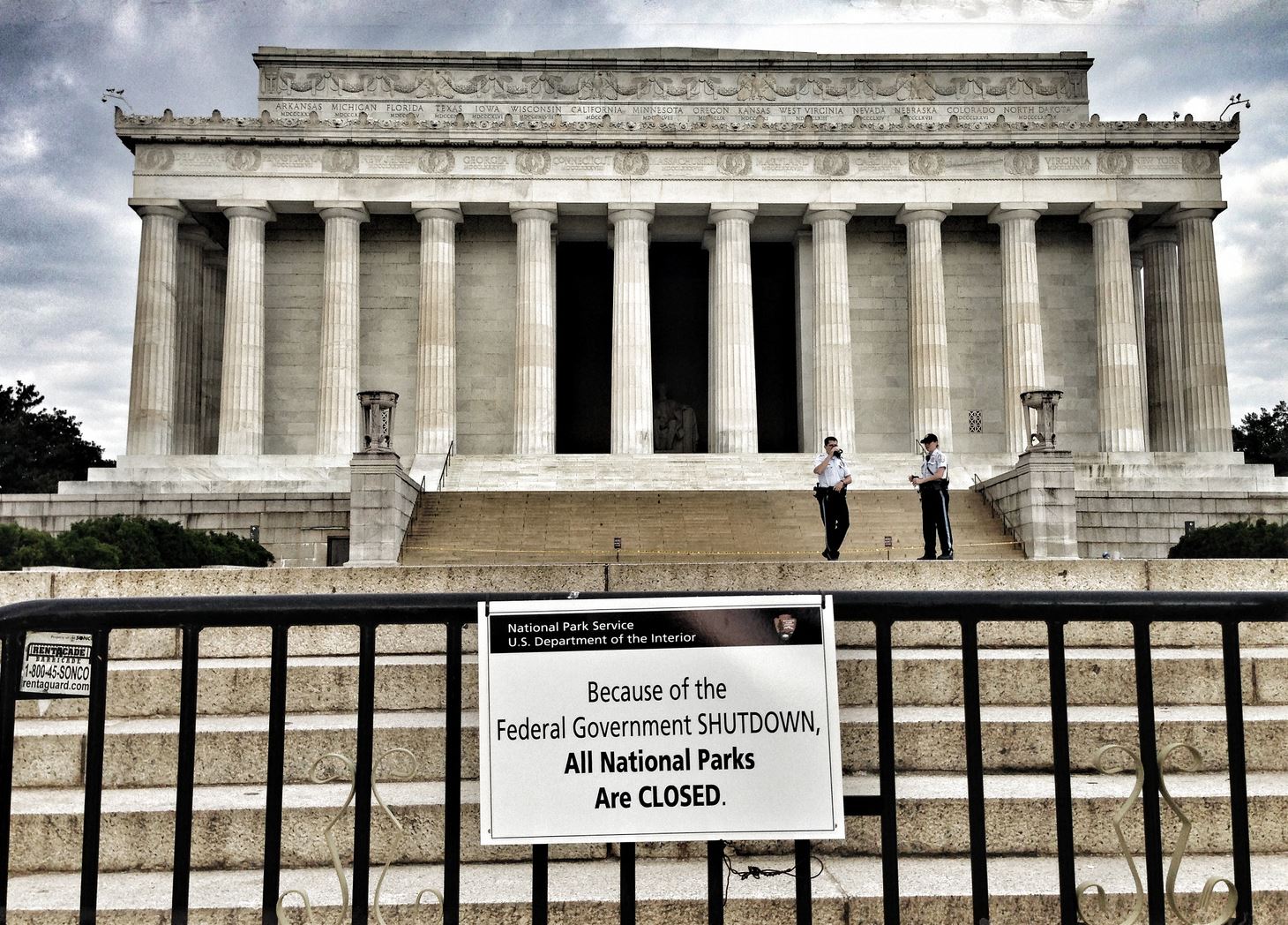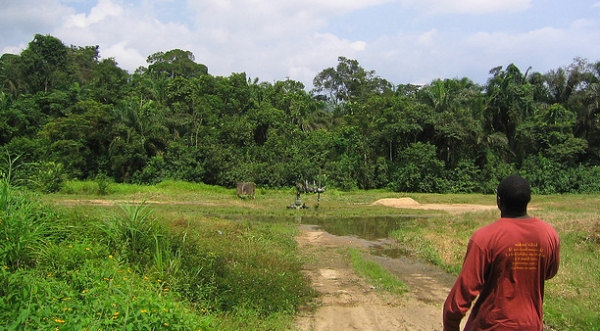Welcome to Around the World! This week we feature a discussion with Ian Bremmer, President of the Eurasia Group, on what effects the U.S. government shutdown will have on international relations, and more.
 | Ian Bremmer: The International Impact of the U.S. Government Shutdown The U.S. government shutdown "affects international relations more than it affects the U.S. domestically. Because ultimately the reason why this is happening in the U.S. is because America’s leaders do not believe that they will experience particular consequences as a consequence of the actions that they’ve taken. It’s clearly very embarrassing that we can’t fund our government." Ian Bremmer, President of the Eurasia Group, discusses the U.S. government shutdown with Diplomatic Courier Video Correspondent Monica Gray. Watch their conversation here! |
 | The Trans Pacific Partnership is not only fundamental, but virtually necessary if the U.S. is to succeed in cementing its presence not only in the East, but also the Pacific region. Read more about it here. |
 | A Psychological Revolution for China’s Millennials China’s "balinghou"—or Millennial generation—appear set for a psychological revolution triggered by increasing consumerism and decreasing employment opportunities. It is anyone’s guess what direction that might take in a country whose history is the history of one struggle succeeding another. Read more about it here. |
 | Burma: A Still-Simmering Cauldron in Asia Although significant reformist steps have been taken by the Burmese government, the United States has been too willing to mend relationships with Burma, writes Akshan de Alwis, as the Burmese government is only paying lip service to the promises. Read more about it here. |
 | Japan's Innovative New Approach to Global Health Japan is taking new approaches to addressing global health concerns, as well as its own domestic health challenges, utilizing technology and tapping into the power of public private partnerships like never before. Dr. Shiro Konuma, Director of Global Health Policy Division at the Ministry of Foreign Affairs of Japan, discusses these innovative approaches with video correspondent Monica Gray. Watch what he has to say here. |
 | "If we fail to invest in our refining sector, if we fail to effectively deter massive theft, if we fail to provide jobs and if we fail to advance our local communities then we will only increase insecurity in the Delta region and perpetuate Nigeria’s reputation as a nation abundant in potential however mired in mismanagement," writes Dr. Orji Uzor Kalu, former governor of Abia State, Nigeria. Read more about it here. |
 | Q&A with Senator Byron Dorgan on "Gridlock" How vulnerable are our energy systems to cyberterrorism? Could the electric grid be hacked with just a thumb drive? Senator Byron Dorgan sat down with the Diplomatic Courier to discuss these issues and more alongside the launch of his latest novel, Gridlock. Read about it here. |
Around the Web
Iran's Foreign Minister Mohammad Javad Zarif and a team of diplomats met Tuesday in Geneva with representatives from world powers, in order to outline technical aspects of a proposal to end a decade-long standoff over Iran's nuclear capabilities. Details on the presentation were not immediately available, but a senior State Department official described the presentation, given in English, as "detailed" and "useful." The good news from the meeting sparked jokes on Twitter that negotiations with Iran were proceeding faster than negotiations in Congress over the shutdown and debt ceiling.
On Secretary of State John Kerry's surprise visit to Afghanistan, the New York Times writes: "Last Saturday, Secretary of State John Kerry called President Hamid Karzai of Afghanistan with a simple question: If Mr. Kerry came to Kabul, would it help break a deadlock in negotiations to keep American forces in Afghanistan beyond next year?" The meeting between the two men seemed to make progress, reportedly settling all the issues between the two countries except for legal immunity for U.S. troops, which Afghanistan President Karzai claims to have no control over.
This Week in History
1981: Egyptian President Anwar Sadat was assassinated during the annual victory parade held in Cairo to celebrate Egypt's crossing of the Suez Canal, by Islamist extremists who were unhappy over his negotiations with Israel and the signing of the Egypt-Israel Peace Treaty. He was succeeded by his vice president Hosni Mubarak.


a global affairs media network
Around the World!

October 15, 2013
Welcome to Around the World! This week we feature a discussion with Ian Bremmer, President of the Eurasia Group, on what effects the U.S. government shutdown will have on international relations, and more.
 | Ian Bremmer: The International Impact of the U.S. Government Shutdown The U.S. government shutdown "affects international relations more than it affects the U.S. domestically. Because ultimately the reason why this is happening in the U.S. is because America’s leaders do not believe that they will experience particular consequences as a consequence of the actions that they’ve taken. It’s clearly very embarrassing that we can’t fund our government." Ian Bremmer, President of the Eurasia Group, discusses the U.S. government shutdown with Diplomatic Courier Video Correspondent Monica Gray. Watch their conversation here! |
 | The Trans Pacific Partnership is not only fundamental, but virtually necessary if the U.S. is to succeed in cementing its presence not only in the East, but also the Pacific region. Read more about it here. |
 | A Psychological Revolution for China’s Millennials China’s "balinghou"—or Millennial generation—appear set for a psychological revolution triggered by increasing consumerism and decreasing employment opportunities. It is anyone’s guess what direction that might take in a country whose history is the history of one struggle succeeding another. Read more about it here. |
 | Burma: A Still-Simmering Cauldron in Asia Although significant reformist steps have been taken by the Burmese government, the United States has been too willing to mend relationships with Burma, writes Akshan de Alwis, as the Burmese government is only paying lip service to the promises. Read more about it here. |
 | Japan's Innovative New Approach to Global Health Japan is taking new approaches to addressing global health concerns, as well as its own domestic health challenges, utilizing technology and tapping into the power of public private partnerships like never before. Dr. Shiro Konuma, Director of Global Health Policy Division at the Ministry of Foreign Affairs of Japan, discusses these innovative approaches with video correspondent Monica Gray. Watch what he has to say here. |
 | "If we fail to invest in our refining sector, if we fail to effectively deter massive theft, if we fail to provide jobs and if we fail to advance our local communities then we will only increase insecurity in the Delta region and perpetuate Nigeria’s reputation as a nation abundant in potential however mired in mismanagement," writes Dr. Orji Uzor Kalu, former governor of Abia State, Nigeria. Read more about it here. |
 | Q&A with Senator Byron Dorgan on "Gridlock" How vulnerable are our energy systems to cyberterrorism? Could the electric grid be hacked with just a thumb drive? Senator Byron Dorgan sat down with the Diplomatic Courier to discuss these issues and more alongside the launch of his latest novel, Gridlock. Read about it here. |
Around the Web
Iran's Foreign Minister Mohammad Javad Zarif and a team of diplomats met Tuesday in Geneva with representatives from world powers, in order to outline technical aspects of a proposal to end a decade-long standoff over Iran's nuclear capabilities. Details on the presentation were not immediately available, but a senior State Department official described the presentation, given in English, as "detailed" and "useful." The good news from the meeting sparked jokes on Twitter that negotiations with Iran were proceeding faster than negotiations in Congress over the shutdown and debt ceiling.
On Secretary of State John Kerry's surprise visit to Afghanistan, the New York Times writes: "Last Saturday, Secretary of State John Kerry called President Hamid Karzai of Afghanistan with a simple question: If Mr. Kerry came to Kabul, would it help break a deadlock in negotiations to keep American forces in Afghanistan beyond next year?" The meeting between the two men seemed to make progress, reportedly settling all the issues between the two countries except for legal immunity for U.S. troops, which Afghanistan President Karzai claims to have no control over.
This Week in History
1981: Egyptian President Anwar Sadat was assassinated during the annual victory parade held in Cairo to celebrate Egypt's crossing of the Suez Canal, by Islamist extremists who were unhappy over his negotiations with Israel and the signing of the Egypt-Israel Peace Treaty. He was succeeded by his vice president Hosni Mubarak.


